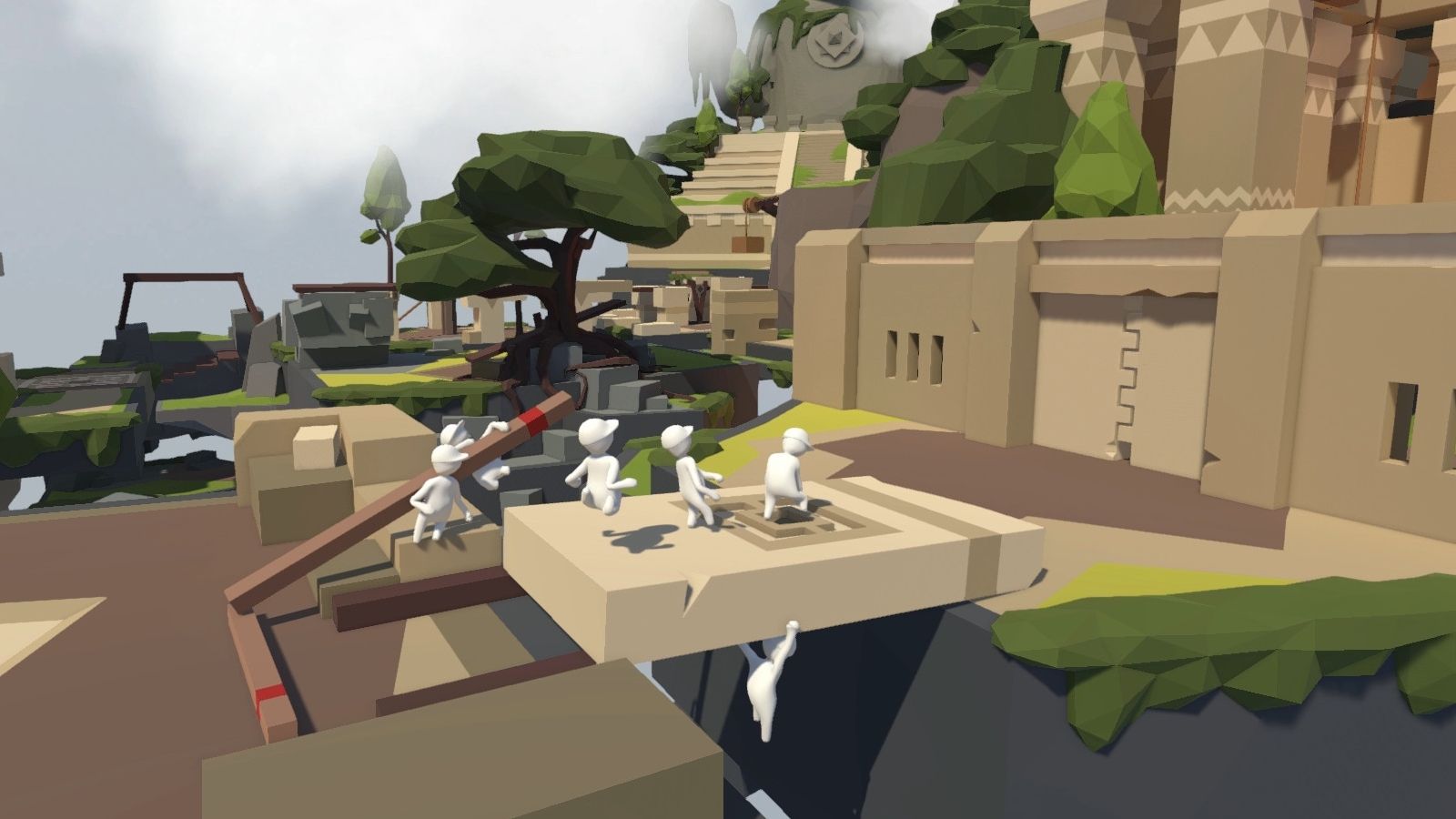Experience Thrilling Journeys in Multiplayer Puzzle Games for Free: A Gamer's Overview
Experience Thrilling Journeys in Multiplayer Puzzle Games for Free: A Gamer's Overview
Blog Article
Examination Your Strategic Skills in one of the most Involving Multiplayer Games
In the ever-evolving landscape of multiplayer video gaming, tactical abilities are the keystone of success, offering gamers an opportunity to showcase their tactical prowess throughout different genres. From the high-stakes intensity of real-time strategy showdowns to the precise preparation needed in turn-based tactical battles, each game offers a special challenge that examines the restrictions of strategic reasoning. As gamers participate in team-based competitors or cooperative experiences, the need of fast decision-making and collaboration becomes apparent. What really sets these games apart, and how do they push your tactical capabilities past conventional limits? The responses wait for expedition.
Real-Time Method Showdowns
Real-time method (RTS) showdowns have long been a cornerstone of involving multiplayer gaming, captivating players with their blend of tactical depth and busy decision-making. These games require gamers to take care of resources, develop armies, and develop complicated strategies in real-time, often against just as skilled opponents. The constant pressure to adjust and defeat opponents in a vibrant setting is what sets RTS video games apart, making them a preferred amongst competitive gamers.
One of the defining attributes of RTS showdowns is the focus on multitasking and source monitoring. Gamers must allocate their attention across different tasks, such as collecting resources, constructing structures, and deploying systems purposefully throughout the battleground. This necessitates fast reflexes and an intense ability to focus on actions, usually resulting in extreme, adrenaline-fueled suits.
Notable RTS games such as "StarCraft II," "Age of Empires," and "Command & Conquer" have actually left indelible marks on the style, providing diverse gameplay auto mechanics and highly detailed globes. Multiplayer puzzle games for free. These titles have actually grown devoted areas and competitive scenes, where gamers refine their skills, research techniques, and participate in high-stakes events. The allure of RTS showdowns hinges on their capacity to test gamers' critical acumen and reflexive expertise in equal procedure
Turn-Based Tactical Battles
These video games offer gamers the possibility to ponder over each action, promoting a chess-like setting where foresight and mindful planning are vital. Players must anticipate their challengers' activities, adapt to progressing situations, and execute well-balanced approaches to secure success.
In multiplayer setups, turn-based tactical fights become fields for intellectual duels. Competitors participate in detailed mind video games, predicting and responding to each other's techniques with precision. Popular video games like "XCOM 2" and "People VI" exhibit this gameplay, motivating players to think about every possible variable before dedicating to a strategy. The asynchronous nature permits thoughtful decision-making, making each experience an examination of wits and patience.
Additionally, turn-based tactical fights commonly incorporate diverse systems and capabilities, adding layers of complexity to each suit. Gamers have to stabilize offensive maneuvers with protective tactics, handle sources sensibly, and maximize the capacity of their forces. This category's enduring charm exists in its capability to challenge gamers' strategic acumen in a managed, calculated setup.
Cooperative Strategy Experiences
These games call for gamers to work together towards common objectives, leveraging each player's distinct abilities and staminas to get over difficulties. Titles such as "Overcooked" and "Deep Rock Galactic" exemplify this genre, stressing the necessity for gamers to integrate their actions and strategies.

The allure of participating strategy experiences exists in their capacity to reinforce social skills while giving a appealing and tough gameplay experience. These video games cultivate a feeling of unity and common objective, offering gamers a satisfying choice to traditional affordable video gaming landscapes.
Competitive Team-Based Obstacles
Competitive team-based challenges present a vibrant arena where players match their abilities against opposing groups, highlighting both individual skill and seamless group coordination. These video games need individuals to balance individual prowess with critical cooperation, promoting a distinct setting where synergy is vital. Success in such settings usually rests on the capacity to interact effectively, implement tactical approaches, and adjust promptly to unraveling scenarios.
The engaging nature of these difficulties is obvious in the varied variety of games that use team-based competition. Titles like "Organization of Legends," "Overwatch," and "Counter-Strike: Global Offensive" go to the center, each providing distinctive gameplay technicians that demand communication and tactical acumen. In these fields, the group's performance is as vital as the individual contributions of its members, making every duty considerable to the total result.
Additionally, affordable team-based games cultivate a feeling of sociability and shared accomplishment. Gamers need to discover to trust fund and count on each various other, creating bonds that boost the video gaming experience. The pressure of encountering awesome opponents additionally increases the thrill, making sure that individuals are continuously challenged to boost their tactical thinking and gameplay implementation.
Mind-Bending Puzzle Battles
While competitive team-based obstacles highlight cooperation and technique, mind-bending problem confrontations provide a different sort of intellectual involvement, concentrating on private problem-solving and cognitive prowess. These games evaluate the restrictions of logical reasoning and creative thinking, calling for gamers to browse complicated scenarios and fix complex challenges. Unlike team-based video games, the focus right here gets on personal accomplishment and imagination, typically under the pressure of time constraints or escalating difficulty levels.
Gamers should exercise spatial thinking, logical reduction, and pattern acknowledgment. Titles such as "The Witness" and "Portal 2" serve as perfect instances, testing gamers with multidimensional puzzles that demand deep concentration and cutting-edge techniques.
In addition, multiplayer problem video games introduce a competitive side by enabling players to match their analytical abilities against others. Games like "Maintain Chatting and No one Explodes" require gamers to interact properly to fix straight from the source puzzles cooperatively, mixing the adventure of competition with the contentment of joint accomplishment. Ultimately, these video games provide an enriching experience, developing calculated reasoning in a distinctly engaging environment.
Verdict
Finally, the varied selection of multiplayer video games provides a phenomenal system for refining strategic skills throughout numerous genres. Real-time method helpful hints face-offs like "StarCraft II" need fast decision-making and source administration, while turn-based tactical fights highlight systematic planning. Cooperative approach experiences such as "Deep Rock Galactic" highlight team effort and partnership, whereas competitive team-based difficulties, consisting of "League of Legends," need sychronisation and flexibility. These dynamic environments collectively foster the development of tactical thinking, improving both private and collective gaming experiences.
These games call for gamers to manage resources, develop militaries, and develop complex strategies in real-time, frequently versus similarly competent opponents. These video games need players to work together in the direction of typical purposes, leveraging each player's unique abilities and strengths to conquer difficulties.In cooperative technique video games, players usually think duties with specific responsibilities, requiring a deep understanding of their very own capacities as well as those of their colleagues. The vibrant nature of these video games demands flexibility, as players need to adjust their methods in real-time to fit advancing situations.

Report this page